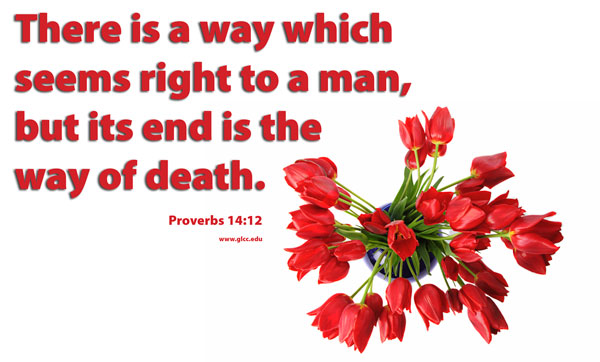
Elton Trueblood in his book, “The Predicament of Modern Man”, writes, “The terrible danger of our time consists in the fact that ours is a cut flower civilization. Beautiful as cut flowers may be, and as much as we use our ingenuity to keep them looking fresh for a while, they will eventually die. And they die because they are severed from their sustaining roots. We are trying to maintain the dignity of the individual apart from the deep faith that every man is made in God’s image and is therefore precious in God’s eyes.”
Anyone who has been paying attention knows that what he says is true. We indeed are a “cut flower” civilization. We are a generation that seeks to sever its roots, especially from its Creator. I find it sad that we seem to be the first generation of man that doesn’t know why we exist. What makes Trueblood’s comments even more significant is that he wrote those words in 1944. It makes you wonder if time is running out. No longer believing in God, man has determined that he is on his own to figure out what constitutes real life. He is on his own to determine what is right and what is wrong. The result is what one man wrote, “If life is pointless, why should ethics or morals serve any purpose except my own? If I am merely the product of happenstance and chance, why should I subject my self to anyone else’s moral convictions if I haven’t yet, say, evolved to their level of expectation?” If there is no God then there is no right answer to that man’s question. If I am the center point of reference, then why shouldn’t I do exactly as I please? Dostoevsky once stated, “If God does not exist, everything is possible.” Paraphrased, one could say, “If God does not exist, any self is possible.”
In the book, “Habits of the Heart”, sociologist Robert Bellah and his associates made an attempt to discover what Americans thought about how one should live. They wanted to see how the typical American determined his own personal ethics and values. (This is a secular book whose only goal was to present their findings from a sociological point of view.) What they found was interesting. In talking to one man, who was representative of many Americans they interviewed, it was discovered that while he kept referring to “values” and “priorities” it was not justified by any wider framework of life purpose or belief. What is good is simply what one finds rewarding. If one’s preferences change, so does the nature of the good. Even the deepest ethical virtues were justified as matters of personal preference. In interviewing a highly educated woman she was asked to sum up her sense of personal ethics to which she replied, “I just sort of accept the way the world is and then don’t think about it a whole lot. I tend to operate on the assumption that what I want to do and what I feel like doing is what I should do.” Amazing.
The book concludes by saying that much of educated Americans have values that have little meaning. This is what the author says, “Values turn out to be the incomprehensible, rationally indefensible thing that the individual chooses when he or she has thrown off the last vestige of external influence and reached pure, contentless freedom.” He is saying that we have come to the place in America where our freedom has no content and our values have no context.
Yes, we are a part of a “cut flower” civilization. The Bible talks about this way of life in Proverbs 14:12, “There is a way which seems right to a man, but its end is the way of death.” The writer of Proverbs goes on to say in verse 34, “Righteousness exalts a nation, but sin is a disgrace to ant people.” He is saying that if a person or a nation continues to live as if God does not exist then disgrace and death will be the result. The “cut flower” will ultimately die.




